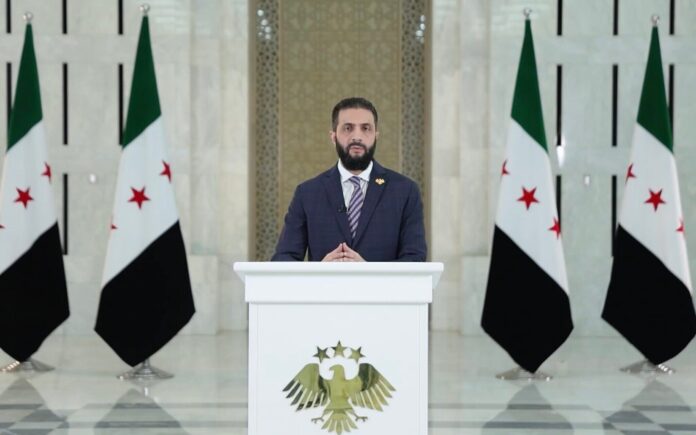Syrian Leader Condemns IDF Strikes on Government Sites
Syria’s interim president, Ahmed al‑Sharaa, spoke on July 17, 2025, in a rare televised address to condemn Israeli air attacks that struck part of the Defense Ministry and areas near the presidential palace in Damascus. He said Israel hit these sites under the claim of defending its Druze minority, but he accused it of aiming to sow chaos and destruction across Syria. And he warned that Syrians stand ready to fight if their dignity or security comes under threat.
He also pointed out that government forces had moved into the Druze‑majority province of Sweida to end clashes between Druze and Bedouin groups, but that witnesses reported those forces joined Bedouin fighters in attacking Druze civilians. And he said this unrest gave Israel a pretext to escalate with air raids that damaged civilian and state facilities, which he called a serious violation of Syrian sovereignty.
Ceasefire Brings Temporary Calm in Sweida

On July 16, Syria’s caretaker government and local Druze leaders agreed to a new ceasefire after days of deadly clashes in Sweida province. The deal required Syrian army units to withdraw, but some Druze elders rejected the terms, fearing a repeat of past betrayals. The local unrest stemming from disputes over land and tribal rivalries has claimed more than 300 lives since mid‑July, according to the Syrian Observatory for Human Rights.
Israel said it would keep its forces ready to block any expansion of Islamist militias near its border and vowed to protect Druze communities on both sides of the Golan Heights. Roughly 1,000 Israeli Druze youths crossed into Syria to aid their co‑religionists, even as Israeli leaders called for calm.
International Mediation and Regional Tensions

And yet, al‑Sharaa praised mediation by the United States, Turkey, and several Arab states for preventing a full‑scale escalation that could have spread beyond Syria’s south. He thanked those mediators for restoring a fragile peace and urged them to press Israel to end its “wide‑scale targeting” of Syrian civilians and government sites.
The United States also stepped in, with Secretary of State Marco Rubio saying that diplomacy had led to an understanding that fighting would stop soon. He called on all parties to respect Syria’s borders and avoid actions that could ignite a wider war.
Responsibility and the Fate of the Druze Minority
President al‑Sharaa vowed to hold accountable any Syrian security personnel who abused Druze civilians, underlining that the state must protect its religious minorities. He spoke directly to the Druze community and said their rights and safety remain a priority for his administration.
He emphasized that Syrians do not fear conflict, but that he will always place national interests above chaos and destruction. His comments aimed to reassure both domestic and foreign audiences that Syria can defend its land and citizens without playing into external agendas.
Personal Analysis
And it seems clear that both Syria and Israel now face a delicate balance. Syria must rebuild trust with its Druze citizens after reports of abuses, while Israel must justify its deep strikes inside a sovereign state. The ceasefire shows that outside powers still hold sway in Syria’s south, but long‑term stability remains out of reach as each side tests the other’s limits.
Sources: Reuters.com

